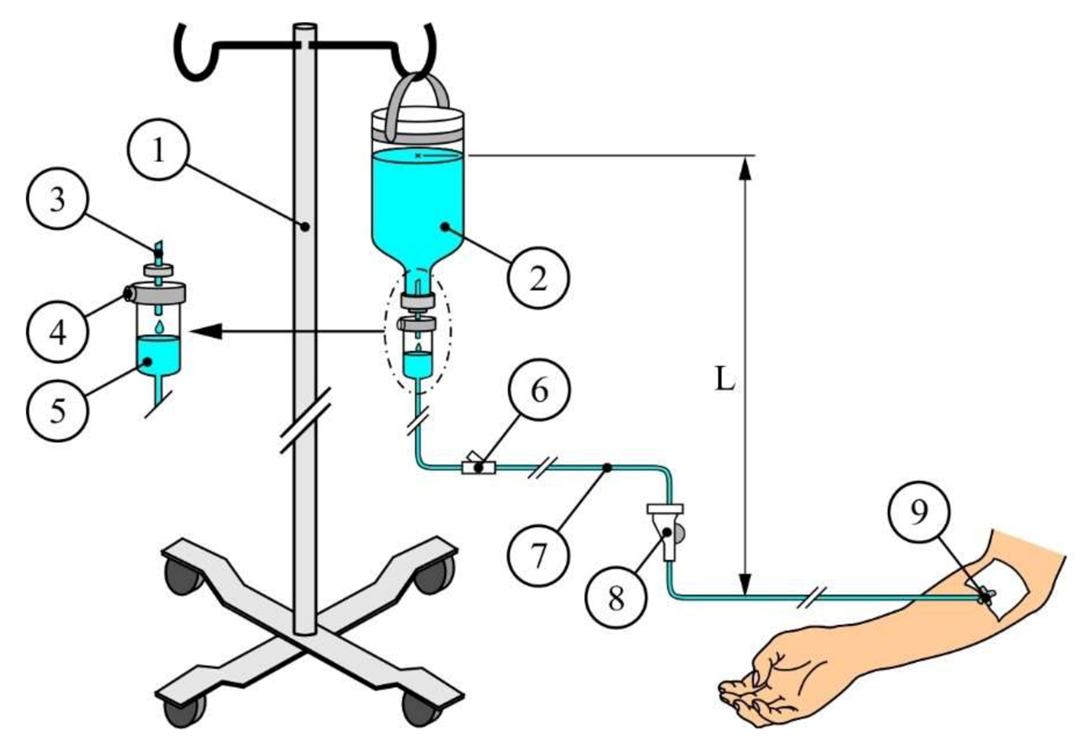A client with diverticular disease has just returned from a colonoscopy. While conducting an abdominal assessment, the nurse monitors for which of the following as an initial sign of a possible complication of the procedure?
Guarding and rebound tenderness
Nausea and vomiting
Diarrhea
Hyperactive bowel sounds
The Correct Answer is A
Choice A reason: Guarding and rebound tenderness are signs of peritonitis, which is a serious complication of colonoscopy. Peritonitis is an inflammation of the peritoneum, the membrane that lines the abdominal cavity. It can be caused by perforation or puncture of the colon during the colonoscopy, which allows bacteria and fecal matter to enter the peritoneal space. The nurse should monitor the client for signs of peritonitis, such as abdominal pain, rigidity, fever, and leukocytosis.
Choice B reason: Nausea and vomiting are not specific signs of a complication of colonoscopy. They may be caused by other factors, such as the sedation, the bowel preparation, or the ingestion of food or fluids after the procedure. Nausea and vomiting may also be symptoms of other conditions, such as gastroenteritis, food poisoning, or pregnancy.
Choice C reason: Diarrhea is not a sign of a complication of colonoscopy. Diarrhea may be a normal consequence of the bowel preparation, which involves taking laxatives or enemas to clear the colon before the procedure. Diarrhea may also be caused by other factors, such as the ingestion of food or fluids after the procedure, or the presence of an underlying bowel disorder, such as irritable bowel syndrome or inflammatory bowel disease.
Choice D reason: Hyperactive bowel sounds are not a sign of a complication of colonoscopy. Hyperactive bowel sounds may indicate increased peristalsis, which is the movement of the digestive tract. Hyperactive bowel sounds may be a normal response to the bowel preparation, the ingestion of food or fluids after the procedure, or the stimulation of the colon during the colonoscopy. Hyperactive bowel sounds may also be present in conditions such as diarrhea, gastroenteritis, or intestinal obstruction.
Nursing Test Bank
Naxlex Comprehensive Predictor Exams
Related Questions
Correct Answer is A
Explanation
Choice A reason: This is a correct answer because normal saline is an isotonic solution, which means it has the same osmolarity as the blood plasma. It does not cause any fluid shifts between the intracellular and extracellular compartments, and it can help restore the fluid balance and the blood pressure of the dehydrated client.
Choice B reason: This is not a correct answer because 1/2 normal saline is a hypotonic solution, which means it has a lower osmolarity than the blood plasma. It causes fluid to shift from the extracellular to the intracellular compartment, which can lead to cellular swelling and edema. It is not suitable for rapid infusion, as it can cause hemolysis and hypotension.
Choice C reason: This is not a correct answer because D5W (5% Dextrose in Water) is an isotonic solution when it is in the IV bag, but it becomes hypotonic once it enters the body, as the dextrose is rapidly metabolized and only water remains. It causes fluid to shift from the extracellular to the intracellular compartment, which can lead to cellular swelling and edema. It is not suitable for rapid infusion, as it can cause hemolysis and hypotension.
Choice D reason: This is not a correct answer because D5 1/2 normal saline is a hypertonic solution, which means it has a higher osmolarity than the blood plasma. It causes fluid to shift from the intracellular to the extracellular compartment, which can lead to cellular shrinkage and dehydration. It is not suitable for rapid infusion, as it can cause hypernatremia and fluid overload.

Correct Answer is C
Explanation
Choice A reason: This is not the best response because it is alarmist and does not address the client's concern. The nurse should not assume that the client needs to have their medications adjusted or be admitted to the hospital without further assessment.
Choice B reason: This is not the best response because it is inaccurate and does not explain the link between urine retention and confusion. The nurse should not imply that the client is causing their own confusion by not drinking enough water.
Choice C reason: This is the best response because it is accurate and educates the client on the effects of dehydration on the body. The nurse should encourage the client to drink more fluids throughout the day and offer strategies to make it easier for them to access the bathroom at night.
Choice D reason: This is not the best response because it is irrelevant and does not address the client's dehydration. The nurse should not suggest that the client has a urinary tract infection without evidence or testing. The nurse should also not discourage the client from urinating at night, as this can lead to other complications.
Whether you are a student looking to ace your exams or a practicing nurse seeking to enhance your expertise , our nursing education contents will empower you with the confidence and competence to make a difference in the lives of patients and become a respected leader in the healthcare field.
Visit Naxlex, invest in your future and unlock endless possibilities with our unparalleled nursing education contents today
Report Wrong Answer on the Current Question
Do you disagree with the answer? If yes, what is your expected answer? Explain.
Kindly be descriptive with the issue you are facing.
